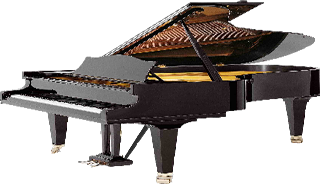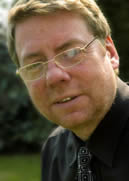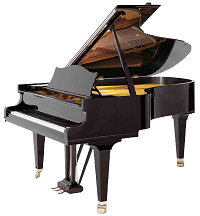

Welcome to Tom Wakefield's Teaching Biography page. Here you can read about Tom's teaching activities, read a few of his pet theories in the Freqently Asked Questions section or go tab to see sample programmes or go to Enquiries if you're interested in making a booking.
Teaching Biography

Please roll your mouse over photos for more details
photograph: Tony Senior
https://www.facebook.com/
tony.senior.54
The son of a professional musician, Tom Wakefield was attracted to the piano from his earliest childhood and at the age of sixteen won a scholarship to study at the Royal Manchester College of Music where he gained the Teacher's Diploma (ARMCM) with Class A and graduated from the Royal Schools of Music (GRSM) with special merit in performance.
Whilst continuing his piano studies at the Royal Northern College of Music he built up a peripatetic teaching practice in the the Yorkshire countryside with the help of his trusty Bond Minicar. (If the pupils whose fruit-and-veg stall was knocked over by a bit of clumsy reversing one Saturday afternoon should happen to be reading this, he is still profusely apologetic.)
On leaving college he joined the staff at the Manchester School of Music where he and his pupils were frequently to be heard in concert. He has also given lessons/masterclasses at the Blackburn School of Music, The Department of Music, Manchester University, Fitzwilliam College, Cambridge and has given a seminar on teaching methods Franz Liszt Conservatoire, University of Debrecen, Hungary. (Show testimonial.)
Tuition offered…

![]() Church of St Peter
Church of St Peter
and St Leonard,
Horbury
Tom helps pupils prepare for examinations, festivals, diplomas, competitions and concert work. He is against one-size-fits-all teaching methods and his keenness that every pupil should develop their own individual musical persona is reflected in the excellent examination results his pupils constantly achieve. Those who wish to study for pleasure and personal satisfaction are equally welcome. Tom is now based in Horbury West Yorkshire.
Extensive experience of learning new pieces quickly for public performance has resulted in a wealth of know-how when it comes to efficient practising techniques and he loves seeing other people's problems disappear as if by magic when these methods are applied. Tom holds a CRB Enhanced Disclosure Certificate and is listed with 'approved teacher status' in the Incorporated Society of Musicians' online register of teachers.
Why waste time travelling…
Thanks to the massive recent improvement in web conferencing programs, ardent practisers no need to forsake their piano an hour or so before their lesson times in order to hang around in traffic jams or at bus stops. Programs like Skype and Oovoo offer the attractive alternative of remaining comfortably at home and starting one's lesson with the click of a mouse. They also give total flexibility of lesson times and remove the post-code lottery aspect of getting a good piano teacher. Of course we're talking here about live 1-2-1 lessons, not the ghastly pre-recorded one-size-fits-all variety.
Ever wished you could keep your piano teacher in a cupboard so you could pick their brains when the going gets tough, rather next Wednesday? Well now you can.
Ever been learning a new piece and felt you'd be much better off with daily help on that 'impossible' section rather having to struggle through an hour's lesson with a piece you can't play? Well now you can.
Ever wished you could record your lesson with a single click to study again at leisure, rather having to rely on those hasty hand-written notes? Well now you can.
…when you could be learning the piano?

![]() Every home should have one!
Every home should have one!
(But even basic keyboards from Argos can get people started)
For 1-2-1 internet tuition you will need
- Broadband
- Webcam near piano
- Skype or other VOIP system (free download)
- No more time and money wasted travelling to and from lessons
- Study with the teacher of your choice, distance no object
- Complete flexibility of lesson time and duration
- Get the most out of your lessons - record them!
- You'll have to brew your own coffee
- Erm, that's it
Frequently Asked Questions...
http://www.telegraph.co.uk/news/1529291/How-music-lessons-hold-the-key-to-brainier-children.html )
Until recently many thought that the simple act of listening to great music could increase people's intelligence but this is now in some doubt
(see http://www.parentingscience.com/music-and-intelligence.html )
So on to that piano-stool!
Six or seven years old is generally a good time to start lessons but it's never too early to pick things up from family members - even if it means Mum or Dad taking a few piano lessons specifically for that purpose!
Which examining board do you recommend?
Seriously though, juries can be such unpredictable creatures that anyone thinking of remoulding their style of playing or hopping between teachers in the hopes of impressing them is most likely on a hiding to nothing except disappointment.
However, if you're taking a level-headed approach and regard competitions as opportunities and motivators along a continual path of musical development, I'll be happy to help if I can.
It's a real pain and it does my head in big time.
You wouldn't do this, would you?
If on the other hand you're an teenager with an attitude problem then yes, I would.
So stop whingeing and get those notes learnt!
